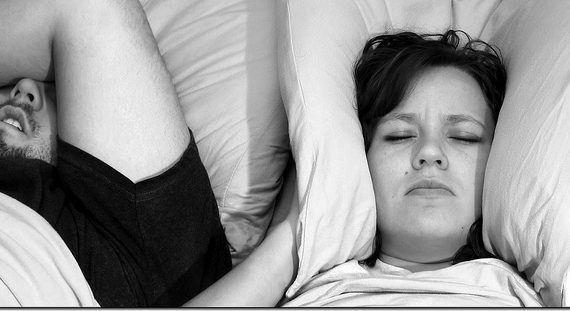Snoring is difficult to deal with –both for the snorer and the person sleeping beside. In a recent study, snoring has been linked to blood pressure. The study observed that people who are used to snoring or have other breathing-related issues while sleeping are at an increased risk of developing higher blood pressure. Moreover, the younger the individual is, the higher is the overall risk.
Researchers recommend that people having breathing-related problems while sleeping should get their blood pressure checked. Breathing-related problems during sleep are quite common in most people. There are some who have small “gaps” as they stop breathing while sleeping.
The gaps are known to occur around 10 or 20 times per hour. As a result, the individual is known to gasp while breathing again. The continuous process throughout sleep might be problematic as it would disrupt the overall quality of sleep. The condition is referred to as “sleep apnea.”
Sleep Apnea and High Blood Pressure
A study assumes that people having sleep apnea could be subject to an increased risk of high blood pressure. However, these conditions tend to be more common as an individual gets old. Therefore, the exact causes for the link-up are still not assured.
Snoring is a typical sound that gets created during the inhaling and exhaling process responsible for creating vibrations against the nasal tissues in the upper-end airways. In most cases, snoring is known to take place at the throat area –wherein the tongue, the tonsils, and other tissues might crowd the given place.
Occasion snoring is not linked to issues related to hypertension. However, cases like habitual or frequent snoring and sleep apnea –especially the drug-resistant form of hypertension, are important to look into. If you are able to treat your snoring or breathing-related problems during sleep, then you can avoid concerns related to blood pressure & hypertension later in life.
If you happen to suffer from breathing-related issues or sleep apnea and also tend to have high blood pressure, then you might observe that as you treat breathing-related problems, it would eventually help in improving the blood pressure readings as well. The overall treatment or “snore stop” for breathing-related issues while sleeping or snoring would entirely depend on the severity of the case. Thankfully, for your ease, you can come across a wide number of high-end oral devices or appliances that could help in reducing instances of snoring on a daily basis.
Treating Your Snoring to Treat Blood Pressure
It is important to note that occasional snoring is not linked to hypertension and high blood pressure. However, habitual snoring or sleep apnea could be associated with the same. The first thing that you can do is to get your blood pressure checked to ensure the overall risk. While you might snore and not have blood pressure now, you do not know when the reverse could happen in future. Therefore, it is recommended to be cautious and to take effective snore solutions towards minimizing snoring.

